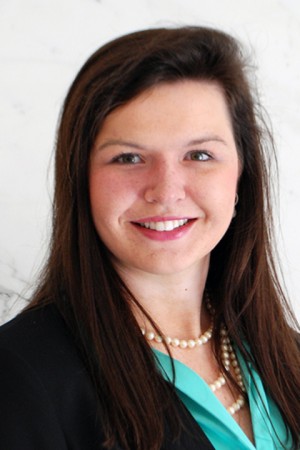
Staff Writer
November is American Diabetes Month. This effort put forth by the American Diabetes Association is meant to spread awareness of the life-changing, life-threatening disease.
Nearly 30 million children and adults in the United States have diabetes, according to the ADA website. Several students and faculty on campus have dealt with the disease and have become accustomed to living a difficult lifestyle in order to stay healthy. Every Friday this month, The Lariat will publish a personal account of diabetes to illustrate the impact of the ever-growing disease.
This week, Mexia sophomore Blair Beene sat down and spoke about her experience with juvenile diabetes, otherwise known as Type 1 Diabetes.
When and how were you diagnosed?
It’s kind of a funny story. I was 10 years old at the time, and my dad had promised me anything I wanted if I went to the doctor to check out my symptoms. Well, one of the side effects of diabetes is a severely dry mouth; I was thirsty all the time. As we were leaving the doctor’s office, I saw a Pepsi vending machine. I looked at my dad and reminded him he said I could have whatever I wanted, so he bought me a Pepsi.
When we got home, the doctor called to tell him my results. Apparently my blood sugar levels read at 719 – and that was before the soda. The highest it’s ever supposed to be is 150. My dad put down the phone and thought he had done the worst thing in the world giving me that soda. He rushed me to a hospital in Dallas, originally an hour and 45 minute drive, which turned in to an hour-long drive. When we got there, the doctors were shocked at how high my levels were, but since all my vitals checked out, they were confident I was OK.
Since then, how has your life been affected by the disease?
Well, I grew up pretty fast at 10 years old. I didn’t want to depend on a nurse to give me shots, I didn’t want to depend on others, so I became responsible to do that myself. I had to look at the carbs in food, take shots, and drink diet soda. What kid does that at age 10?
The first few months were the hardest. It’s what the doctors call the “honeymoon period.” During that time, you just don’t know what amounts of insulin affect you as much as others. You have to learn what you feel like when you’re too high and too low.
What are the differences between feeling too high and too low?
Well, either way you don’t feel like yourself. When I’m too high, I tend to get really lethargic, I don’t have any saliva and I get tired. When I’m too low, I start to slur my words and get dazed and confused.
It was always really hard to monitor when I played tennis. I used to lose to kids who I knew I could beat simply because my blood sugar would raise and I couldn’t get it down in time.
What have been some of the most difficult experiences with diabetes you’ve had?
To be honest, I just really hate it when doctors tell me I can’t do things I know I’m fully capable of doing. It’s hard for me to take what the doctors say as truth when they don’t know what it’s like living with the disease. They tell us we can’t fly planes, for an example. One of the most successful pilots is a female diabetic.
It’s like someone telling you how bad the Holocaust was. You know from history books how incredibly awful it was, but without experiencing that for yourself you don’t know the actual pain they went through.
What have you learned most from having the disease?
Well I can tell you that diabetes has certainly not held me back. It’s just become second nature to me. Everyone gets up in the morning, gets dressed and brushes their teeth. Diabetics do all of that and just so happen to have to check their blood sugar levels too, or take a shot.
People set their own barriers. This is not one for me.



